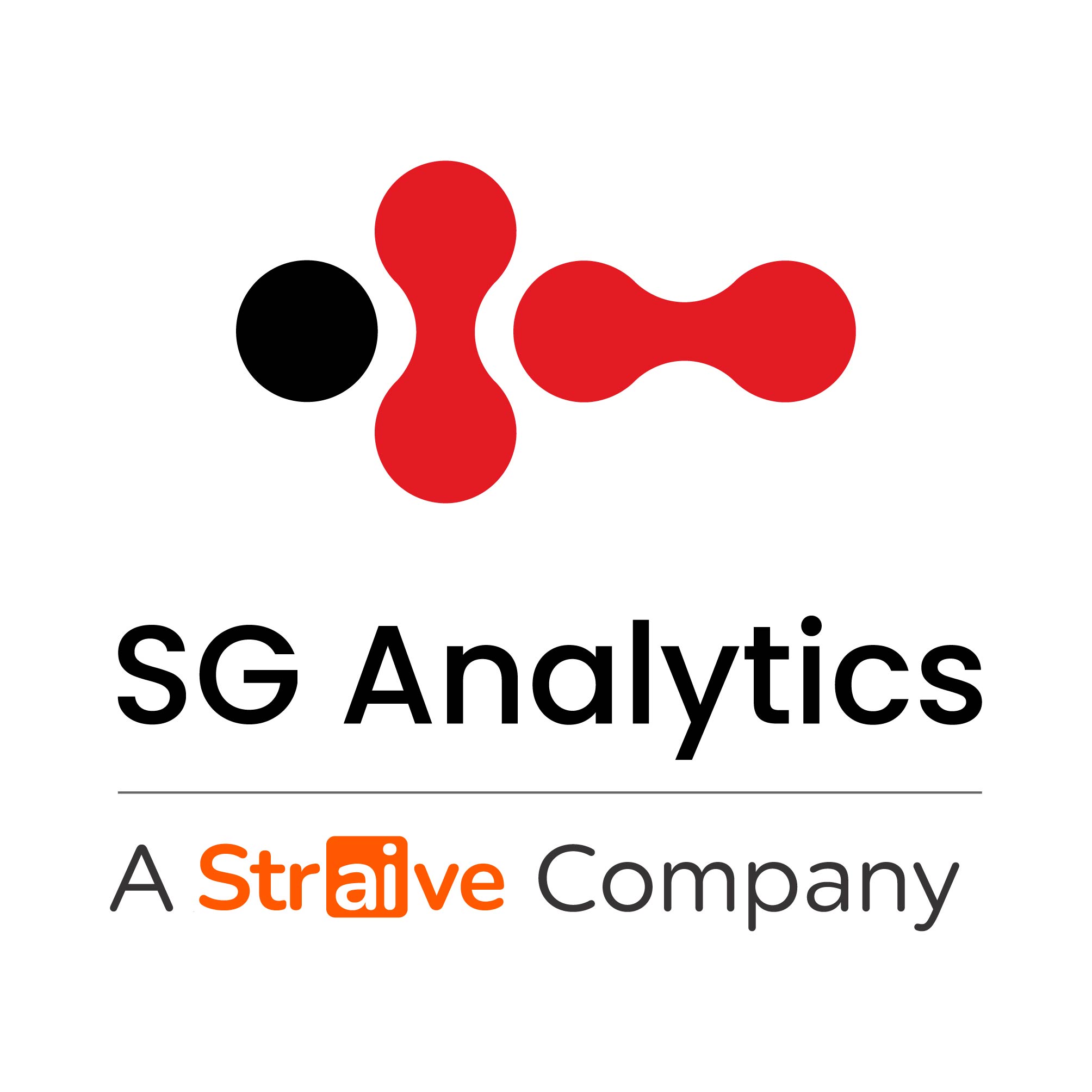Many believe artificial intelligence (AI) is set to disrupt work completely, potentially making some jobs obsolete. However, AI is poised to augment jobs, not scrap them, enhance productivity, and assist industries in ways that can help create new opportunities and growth.
While AI is set to redefine work, it is critical to understand how the maturation of AI systems can help create new opportunities and how investors can keep an eye on it as technology advances.
AI is reshaping how work is done. Rather than replacing humans, organizations are integrating AI tools to assist teams in becoming more effective and productive. This shift is making people obsolete but empowering them to grow their capabilities.
Companies leveraging generative AI for business purposes and automation will likely achieve 2.5x higher revenue growth and 2.4x more productivity than their peers. Organizations accelerate performance gains across numerous functions without compromising the roles of employees. It focuses on AI-led processes that integrate human expertise.
- AI automation enhances human capabilities with smart tools.
- Businesses are witnessing impressive gains by enforcing AI that supports rather than replaces.
- Employees can successfully complete their tasks with greater precision.
- AI helps tackle repetitive tasks, analyze massive datasets, and even support decision-making.
But AI shines brightest when complemented with human abilities like creativity and judgment. Organizations investing in AI for workplace efficiency are witnessing an increase in productivity without downsizing. This strategy boosts outcomes, supports talent retention, and fills skill gaps.
Read more: Top Global Emerging Business Trends for 2025
The Big Question: Augmentation or Automation?
At the heart of this discussion lie two different philosophies.
AI augmentation uses AI as a tool to boost an organization’s abilities, making decision-making smarter, productivity higher, and creative thinking sharper. Here, AI is seen as a partner, handling routine tasks so humans can focus on strategy, creativity, and other complex activities.
On the other hand, AI-led automation is a more dramatic shift where AI isn’t just helping out but is taking over. In this vision, AI handles tasks or processes from start to finish. This helps achieve faster and more accurate outcomes. This also implies fewer errors and lower costs, which might mean fewer jobs.
However, neither path is right or wrong. The choice between augmentation and automation lies in striking the right balance between values, vision, and technology. Viewing a future where AI supports and enhances human work or efficiency is important.
Digging Deeper on the Technical Side
To determine which path makes sense, it is important to understand what augmentation and automation involve.
- AI Augmentation implies using machine learning and natural language processing to help make better decisions. AI systems are built to work with humans, proposing suggestions or insights but leaving the final call to the individual.
- AI Automation implies creating systems that perform tasks without needing any human intervention. Imagine bots handling repetitive tasks like processing invoices or AI-powered chatbots that deal with customer queries from start to finish. Here, AI is replacing human effort by doing the job itself.
Both approaches work on similar tech foundations: data, algorithms, and computing power. However, their goals differ. Augmentation needs AI systems that understand human context and behaviors; on the contrary, automation thrives with clear rules and minimal variability.
Read more: Cybersecurity Priorities for 2025: What Leaders Should Focus On
Striking the Right Balance: Choosing AI Augmentation or Automation
Generative AI transforms workplace dynamics by presenting different pathways for augmentation and automation. However, the key lies in balancing these approaches, which requires an understanding of the unique needs of industries and organizations.
-
Augmentation
AI empowers employees by improving productivity, streamlining workflows, and fostering innovation. Teams can leverage Gen AI for rapid data analysis and design optimization. Marketing teams can use AI to draft content and generate creative ideas.
-
Automation
Conversely, automation is ideal for labor-intensive tasks. HR departments are increasingly relying on AI for talent acquisition, payroll, and employee tracking. Similarly, the accounting division can use automation to simplify processes like invoice processing, freeing professionals to focus on strategic activities.
-
Integration of Both Approaches
Many organizations integrate augmentation and automation to harness the strength of both. Healthcare providers can automate data analysis while relying on staff to make patient care decisions, thereby blending efficiency with the human touch.
-
Future Workforce Strategies
Businesses need to assess their workforce demands, identify tasks suited for GenAI, as well as address ethical concerns like job displacement. By funding upskilling programs and thoughtful planning, organizations can further navigate the challenges of rapid technological advancements while also preserving human creativity and empathy.
Thriving in an AI-Augmented Workplace: Essential Skills
New skill sets are critical to excelling in an AI-augmented workplace. It is pivotal for organizations to identify as well as develop these high-demand skills throughout their workforce planning. Some of the high-income competencies include:
- Advanced analytics
- AI literacy
- Complex problem-solving
- Ethical AI implementation
- Data interpretation
It is estimated that almost 40% of the workforce will need reskilling due to the growing integration of AI and automation. This presents a new opportunity to optimize talent for the future. By focusing on AI-related skills, organizations can stay agile and competitive in the evolving landscape.
Read more: Gen Z and ESG: Two Forces Shaping the Future Workforce
Optimizing Workforce Performance: AI Benchmarking in Action
AI-powered benchmarking tools are set to revolutionize how organizations can enhance performance through data insights.
- AI benchmarking is assisting organizations in optimizing management decisions and tracking workforces.
- AI insights further help improve production efficiency by comparing a client’s output to industry standards.
- Financial institutions can leverage AI benchmarking to assess productivity, equipping consultants to suggest strategies for enhanced efficiency.
- AI tools can assist consultants in making informed recommendations on operational cost management.
Consultants furthermore use AI to enhance talent allocation, analyzing workforce trends across sectors to advise optimal staffing levels. AI-enhanced KPIs can further provide detailed insights into current and future performance.
Shaping the Future: The Role of AI Augmentation in Talent Development
With AI advancing rapidly, businesses are increasingly balancing AI augmentation vs. automation to optimize their workplace without compromising on the human element. AI is enabling employees to enhance human intelligence with new tools that boost productivity and effectiveness across industries.
With the integration of augmented analytics, organizations can empower their teams to achieve more by automating routine tasks, including data entry, issue resolution, and repetitive tasks. It further equips employees to focus on higher-level responsibilities requiring human cognition and creativity.
Across sectors, AI systems are handling vast datasets, delivering insights and data-driven opportunities that drive smarter decision-making. Large language models equip talent acquisition teams to streamline their recruitment process by targeting candidates with specialized skills. This can accelerate hiring processes and support job creation. It further showcases how AI can optimize critical tasks by blending automation with support for roles previously handled by employees. Virtual assistants and generative AI tools are equipping the healthcare sector with the ability to process large amounts of patient data, assisting professionals in making accurate assessments.
AI’s impact further extends to online platforms where AI-driven analytics assist companies in enhancing user satisfaction and economic value by predicting future market trends and enhancing outcomes. This fusion of AI augmentation and human effort promotes efficiency. It helps build a competitive advantage for businesses that leverage AI solutions to retain the human workforce while also maximizing benefits.
Read more: Top 10 Cyber Security Threats 2025
Final Thoughts
The future of work lies in technology that equips human employees to thrive alongside automated solutions, highlighting better outcomes through human-machine collaboration. This strategy is aimed at fostering adaptability, encouraging informed decisions, and allowing employees to develop high-value skills to stay agile in today’s rapidly changing job market. AI augmentation is also reshaping the workplace, equipping businesses to unlock productivity and innovation further without compromising the human touch.
A leader in the Technology industry, SG Analytics partners with global technology enterprises across market research and scalable analytics. Contact us today if you are in search of combining market research, analytics, and technology solutions to design compelling business outcomes driven by technology.
About SG Analytics
SG Analytics (SGA) is an industry-leading global data solutions firm providing data-centric research and contextual analytics services to its clients, including Fortune 500 companies across BFSI, Technology, Media & Entertainment, and Healthcare sectors. Established in 2007, SG Analytics is a Great Place to Work® (GPTW) certified company with a team of over 1200 employees and a presence across the U.S.A., the UK, Switzerland, Poland, and India.
Apart from being recognized by reputed firms such as Gartner, Everest Group, and ISG, SGA has been featured in the elite Deloitte Technology Fast 50 India 2023 and APAC 2024 High Growth Companies by the Financial Times & Statista.

